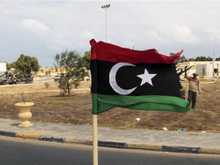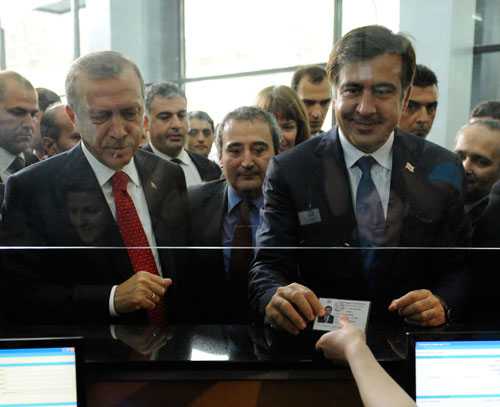Seven Ukrainian sailors imprisoned in Turkey go on hunger strike
Yesterday at 10:31 | Interfax-Ukraine
 Seven Ukrainian sailors from the Nemo, an Estonian cargo ship that has been under arrest in the Sea of Marmara (Turkey) for a year, are in a Turkish prison in the town of Derince and went on a hunger strike on Jan. 4.
Seven Ukrainian sailors from the Nemo, an Estonian cargo ship that has been under arrest in the Sea of Marmara (Turkey) for a year, are in a Turkish prison in the town of Derince and went on a hunger strike on Jan. 4.
Valeriy Babakov, a relative of the captain of the Nemo cargo ship, Oleksandr Tymoshenko, told an Interfax-Ukraine reporter that “the crewmembers of the Nemo cargo ship – seven Ukrainians – are asking for assistance from the state, because they are in a Turkish prison, and they went on a hunger strike from Jan. 4.”
He also noted that “the Estonian cargo ship Nemo, with seven Ukrainians on board, which was flying the flag of Antigua and Barbuda, has been in the Sea of Marmara (Turkey) for a year, because the ship was arrested by local authorities on Jan. 11, 2011 due to the debt of the ship’s bankrupt owner. The dry cargo ship was transferred to Swedbank Estonia due to the debtor’s loans, but the crew then refused to leave the Nemo without getting salaries.”
Babakov said that he was in constant phone and Skype contact with the captain of the cargo ship, Oleksandr Tymoshenko, and that he tried to attract the attention of the media to this problem, and “earlier, through a trade union of seafarers, the captain individually tried to solve the problem with the payment of salaries to the crew.”
Then, in August 2011, Ukraine learned through a number of Ukrainian media outlets that the sailors of the Nemo cargo ship needed assistance [a press conference was held on Skype with the ship’s captain], “however, attempts by the Ukrainian consulate to help the Ukrainian sailors return home failed.”
Babakov also told he was continuing to try to help his relative, Tymoshenko, and his crew, by sending an appeal to Director of the Consular Service Department of the Ukrainian Foreign Ministry Andriy Olefirov.
The appeal notes that “according to the captain, the ship ran out of fuel and food long ago. On Dec. 28, 2011, consuls, after repeated requests from the crew, still took the sailors from the ship and placed them in a Turkish police department, waiting for the permission to leave the country.”
“Despite the fact that permission from Ankara was received on Jan. 2, I understood from the words of the captain that the chief of the port, in which the ship is now located, prevents the Ukrainian crew from leaving home. The vice-consul cannot convince the port authorities (they are writing letters to the port to which no one responds). On Jan. 4, 2012, the crew (the guys lost 15-20 kg in weight over this year) went on a hunger strike,” Babakov said in the appeal.
Babakov asked the leadership of the Consular Service Department of the Ukrainian Foreign Ministry to provide assistance to the Ukrainian sailors.
He also said that the Ukrainian crewmembers of the cargo ship had finally lost hope to get their salaries, “because there was a long-awaited auction on the sale of the ship, at which the money was to be used to repay debts to creditors and salaries to the crew. However, nobody decided to buy the vessel.”
via Kyiv Post. Independence. Community. Trust – Ukraine – Seven Ukrainian sailors imprisoned in Turkey go on hunger strike.




